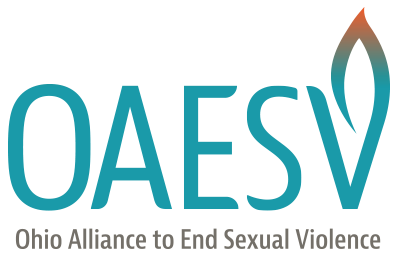Multi-Disciplinary Teams
A multidisciplinary team is a group of community professionals and/or community members who come together for a common cause. The two most common teams that focus on sexual assault response are the Coordinated Community Response Team (CCRT) and the Sexual Assault Response Team (SART). Although the latter has traditionally been the most common, best practice is to have a CCRT, which creates a more inclusive and survivor-centered approach by including community members and survivors.
- Coordinated Community Response Team (CCRT): A Coordinated Community Response Team is a multidisciplinary team that provides a coordinated approach to issues around sexual assault, while collaborating with service providers and system members to strengthen communication and networking with a goal of bringing to light gaps in services needed to support survivors. At their core, CCRT teams operate under the assumption that sexual assault is a community issue and requires the engagement of entire communities to address it. This model is both community-based and led. The following is a list of members to include in your CCRT, but it is not exhaustive. Your CCRT should reflect and be representative of your community members. Please note that US Census data can be used as a good starting point to find your community demographics, but due to access issues, it will also not be exhaustive.
- Mental Health Providers
- Grassroots Organizations/Movers
- Activists
- Latinx Organizations/Community Leaders
- Faith-Based Community Leaders
- Military SARCs/SHARPs
- Substance Use Disorder Organizations
- Immigrant Service Providers/Community Leaders
- Male-centered organizations such as Fatherhood Programs
- Sexual Assault Response Team (SART): A Sexual Assault Response Team is a multidisciplinary team that provides direct intervention to sexual assault survivors when they choose to interact with the legal system. A SART is comprised of professionals who partner together to provide inter-agency, coordinated responses to sexual assault to 1) meet the needs of victims/survivors by creating inclusive, comprehensive protocols and 2) more effectively hold those who cause harm/offenders accountable by coordinating effective investigation and prosecution efforts in connection with a report of sexual assault. Below is a list of agencies often represented in SARTs, but it is not exhaustive.
- Victim Advocates
- Medical Professionals/Forensic Nurse Examiners
- Law Enforcement
- Prosecutors
Work Done by CCRTs and SARTs:
- Provide internal information sharing and cross-training with and for team members
- Build community awareness about the resources available
- Show commitment to the community and sexual assault victims/survivors
- Be accountable to the community and sexual assault victims/survivors
- Create and update CCRT/SART response protocols
- Case review/status updates (not all CCRTs/SARTs conduct case review)
Benefits of Having a SART:
Cases involving Sexual Assault Response Teams:
- Are reported more quickly
- Yields more evidence
- Are more likely to lead to arrest
- Are the strongest predictors that charges will be filed
- Keep victims better informed and engaged through the legal system
(Nugent-Borakove, M. E., Fanflik, P., Troutman, D., Johnson, N., Burgess, A., & O’Connor, A.L. (2006). Testing the Efficacy of SANE/SART Programs: Do They Make a Difference in Sexual Assault Arrest & Prosecution Outcomes?)
Benefits of Having a CCRT:
In addition to the benefits of having a SART, including community members in the response to sexual violence yields:
- More community prevention efforts aimed at ending sexual violence
- More alternatives to justice options for survivors
- More community accountability for ending sexual violence
Building a CCR/SART in your Community:
OAESV created a SART manual and compiled sample resources to provide step-by-step instructions on starting a multi-disciplinary team in your county.
Click here to download our resources.
Growing our Community Responses: Resource Guide
This resource guide serves as a tool to aid in the development of your Sexual Assault Response Team or Coordinated Community Response Team through reflection questions and sample resources.
Click here to download the resource guide.
Meaningful Access Housing Program
This program will allow survivors to have access to short-term housing assistance through a temporary five to seven-day hotel stay.
Learn more about the MAHP process.
